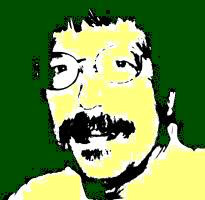Open and Shut: A Case for Preparing Our Students for What’s Next | Inside Higher Ed
My job as a librarian at a liberal arts college is to help students join those conversations by providing doorways into the places where the discussions are happening and by helping students figure out how to pick up what’s going on and practice unfamiliar conversational norms. Much of this work is done by disciplinary faculty, but sometimes they forget how hard it is to find the door and work the doorknob, which is an odd shape and design, baffling until you're used to it. Librarians can also sometimes help students figure out what some of the puzzling words in the conversation are and why that person in the corner is waving her hands so excitedly and why someone else is rolling his eyes. We, like the students, are not insiders, but we’ve picked up some strategies for entering conversations that have been going on for years around us. We’re there to encourage them as they step forward, looking over their shoulders nervously. Am I doing this right? Will I be okay?



